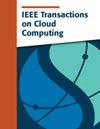Efficient User-Centric Privacy-Friendly and Flexible Wearable Data Aggregation and Sharing
IF 5.3
2区 计算机科学
Q1 COMPUTER SCIENCE, INFORMATION SYSTEMS
引用次数: 0
Abstract
Wearable devices can offer services to individuals and the public. However, wearable data collected by cloud providers may pose privacy risks. To reduce these risks while maintaining full functionality, healthcare systems require solutions for privacy-friendly data processing and sharing that can accommodate three main use cases: (i) data owners requesting processing of their own data, and multiple data requesters requesting data processing of (ii) a single or (iii) multiple data owners. Existing work lacks data owner access control and does not efficiently support these cases, making them unsuitable for wearable devices. To address these limitations, we propose a novel, efficient, user-centric, privacy-friendly, and flexible data aggregation and sharing scheme, named SAMA. SAMA uses a multi-key partial homomorphic encryption scheme to allow flexibility in accommodating the aggregation of data originating from a single or multiple data owners while preserving privacy during the processing. It also uses ciphertext-policy attribute-based encryption scheme to support fine-grain sharing with multiple data requesters based on user-centric access control. Formal security analysis shows that SAMA supports data confidentiality and authorisation. SAMA has also been analysed in terms of computational and communication overheads. Our experimental results demonstrate that SAMA supports privacy-preserving flexible data aggregation more efficiently than the relevant state-of-the-art solutions.以用户为中心、隐私友好、灵活高效的可穿戴设备数据聚合与共享
可穿戴设备可以为个人和公众提供服务。然而,云提供商收集的可穿戴数据可能会带来隐私风险。为了在保持完整功能的同时降低这些风险,医疗保健系统需要隐私友好型数据处理和共享解决方案,这些解决方案可以满足以下三种主要用例:(i)请求处理其自身数据的数据所有者,以及请求处理单个或(iii)多个数据所有者数据的多个数据请求者。现有的工作缺乏数据所有者访问控制,不能有效地支持这些情况,因此不适合可穿戴设备。为了解决这些限制,我们提出了一种新颖、高效、以用户为中心、隐私友好且灵活的数据聚合和共享方案,称为SAMA。SAMA使用多密钥部分同态加密方案,允许灵活地容纳来自单个或多个数据所有者的数据聚合,同时在处理过程中保持隐私。它还使用基于密文策略属性的加密方案,支持基于以用户为中心的访问控制的多个数据请求者之间的细粒度共享。正式的安全性分析表明,SAMA支持数据保密性和授权。还从计算和通信开销方面分析了SAMA。我们的实验结果表明,SAMA比相关的最先进的解决方案更有效地支持保护隐私的灵活数据聚合。
本文章由计算机程序翻译,如有差异,请以英文原文为准。
求助全文
约1分钟内获得全文
求助全文
来源期刊

IEEE Transactions on Cloud Computing
Computer Science-Software
CiteScore
9.40
自引率
6.20%
发文量
167
期刊介绍:
The IEEE Transactions on Cloud Computing (TCC) is dedicated to the multidisciplinary field of cloud computing. It is committed to the publication of articles that present innovative research ideas, application results, and case studies in cloud computing, focusing on key technical issues related to theory, algorithms, systems, applications, and performance.
 求助内容:
求助内容: 应助结果提醒方式:
应助结果提醒方式:


